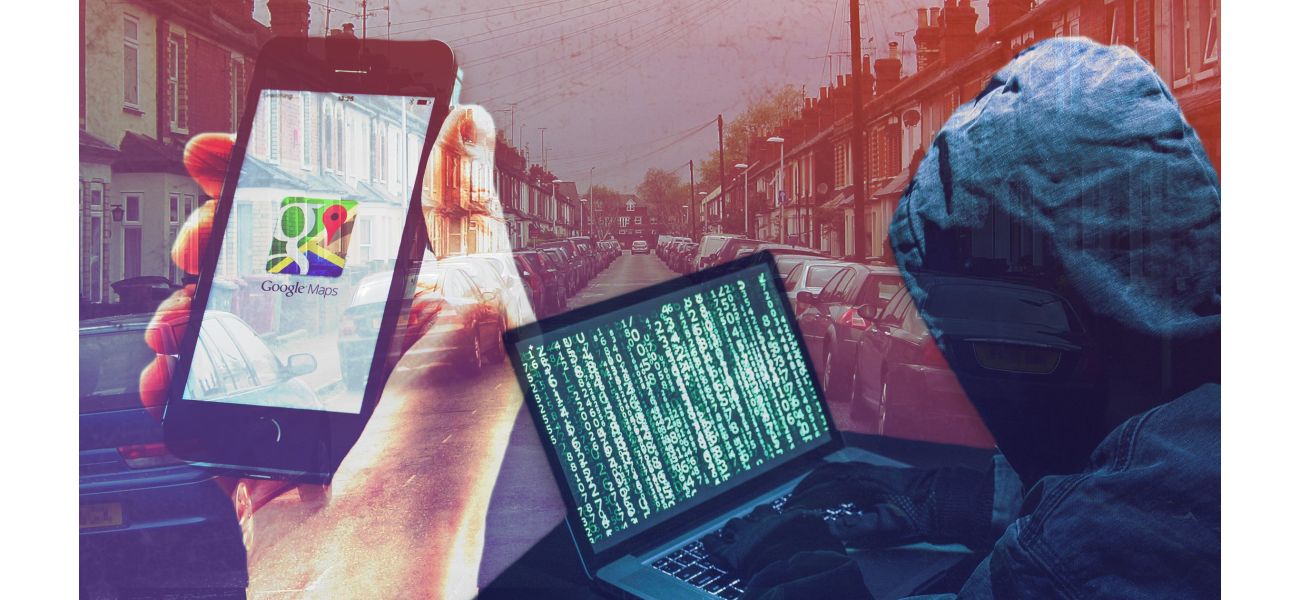Email scammers are now using a frightening tactic involving Google Maps.
Pay and rest well, I am true to my promise.
November 13th 2024.

There has been a disturbing new trend in cybercrime where scammers are trying to intimidate people into giving them money by threatening to reveal their personal information. They are sending screenshots of their victims' home locations, often using Google Maps to show a familiar area with a caption that reads something like, "Can you notice something here?" or "Is this the right place to meet?" The goal is to make people feel unsafe and vulnerable, and to convince them that this is not just an empty threat.
Barracuda, a cybersecurity firm, recently revealed this tactic, which is known as "sextortion" and accounts for 3% of targeted phishing attacks. Essentially, criminals are threatening to share explicit photos or videos of their victims unless they pay them, usually in Bitcoin. They claim to have accessed these materials from the victim's computer and use personal details such as usernames and passwords that have been stolen in data breaches. However, it is likely that they do not actually have any compromising material.
These scammers are becoming more sophisticated and are using personalization to make their emails seem more legitimate. They may include a Google Maps photo of where their victim lives or works, and they often send thousands of similar emails in the hopes that some people will take the bait. If someone does pay the ransom, they are likely to be targeted by even more scams in the future.
The emails themselves are designed to be highly personalized, making it difficult for spam filters to catch them. They may address the victim by their first and last name and list their telephone number, street address, and city. The emails often start with a chilling statement, such as, "I know that calling [telephone number] or visiting [street address] would be a better way to have a chat with you in case you don't cooperate. Don't even try to escape from this. You have no idea what I'm capable of in [city]."
The demand for payment is also increasing, with recent attacks demanding amounts as high as $2,000. While the majority of the emails are similar, there are some variations in the text, including different lines of copy that appear below the bitcoin payment information. Some of these variations include, "Once you pay up, you'll sleep like a baby. I keep my word," "Let me tell ya, it's peanuts for your peace," and "Let me tell ya, it's peanuts for your tranquility." Some emails even include quick response codes to make it easier for victims to send bitcoin payments.
The National Cyber Security Centre advises people not to engage with these scammers and to report the emails to their Suspicious Email Reporting Service. They also warn against paying the ransom, as this will only encourage more scams in the future. If someone has been a victim of a sextortion scam and has paid the ransom, they should report it to their local police force.
It's important to remember that even if these emails include personal information, such as a password, it is likely that this information was obtained from previous data breaches. People can check if their accounts have been compromised by visiting a website called "Have I Been Pwned." If the email includes a password that is still in use, it should be changed immediately.
The scammers are hoping to trigger an emotional response in their victims, which is why they often use personalization and make threats. They want people to panic and pay the ransom, but it's important to remember that they are just guessing and do not have any actual information or materials. By being aware of these scams and not giving in to their demands, we can help put an end to this type of cybercrime.
Barracuda, a cybersecurity firm, recently revealed this tactic, which is known as "sextortion" and accounts for 3% of targeted phishing attacks. Essentially, criminals are threatening to share explicit photos or videos of their victims unless they pay them, usually in Bitcoin. They claim to have accessed these materials from the victim's computer and use personal details such as usernames and passwords that have been stolen in data breaches. However, it is likely that they do not actually have any compromising material.
These scammers are becoming more sophisticated and are using personalization to make their emails seem more legitimate. They may include a Google Maps photo of where their victim lives or works, and they often send thousands of similar emails in the hopes that some people will take the bait. If someone does pay the ransom, they are likely to be targeted by even more scams in the future.
The emails themselves are designed to be highly personalized, making it difficult for spam filters to catch them. They may address the victim by their first and last name and list their telephone number, street address, and city. The emails often start with a chilling statement, such as, "I know that calling [telephone number] or visiting [street address] would be a better way to have a chat with you in case you don't cooperate. Don't even try to escape from this. You have no idea what I'm capable of in [city]."
The demand for payment is also increasing, with recent attacks demanding amounts as high as $2,000. While the majority of the emails are similar, there are some variations in the text, including different lines of copy that appear below the bitcoin payment information. Some of these variations include, "Once you pay up, you'll sleep like a baby. I keep my word," "Let me tell ya, it's peanuts for your peace," and "Let me tell ya, it's peanuts for your tranquility." Some emails even include quick response codes to make it easier for victims to send bitcoin payments.
The National Cyber Security Centre advises people not to engage with these scammers and to report the emails to their Suspicious Email Reporting Service. They also warn against paying the ransom, as this will only encourage more scams in the future. If someone has been a victim of a sextortion scam and has paid the ransom, they should report it to their local police force.
It's important to remember that even if these emails include personal information, such as a password, it is likely that this information was obtained from previous data breaches. People can check if their accounts have been compromised by visiting a website called "Have I Been Pwned." If the email includes a password that is still in use, it should be changed immediately.
The scammers are hoping to trigger an emotional response in their victims, which is why they often use personalization and make threats. They want people to panic and pay the ransom, but it's important to remember that they are just guessing and do not have any actual information or materials. By being aware of these scams and not giving in to their demands, we can help put an end to this type of cybercrime.
[This article has been trending online recently and has been generated with AI. Your feed is customized.]
[Generative AI is experimental.]
0
0
Submit Comment





